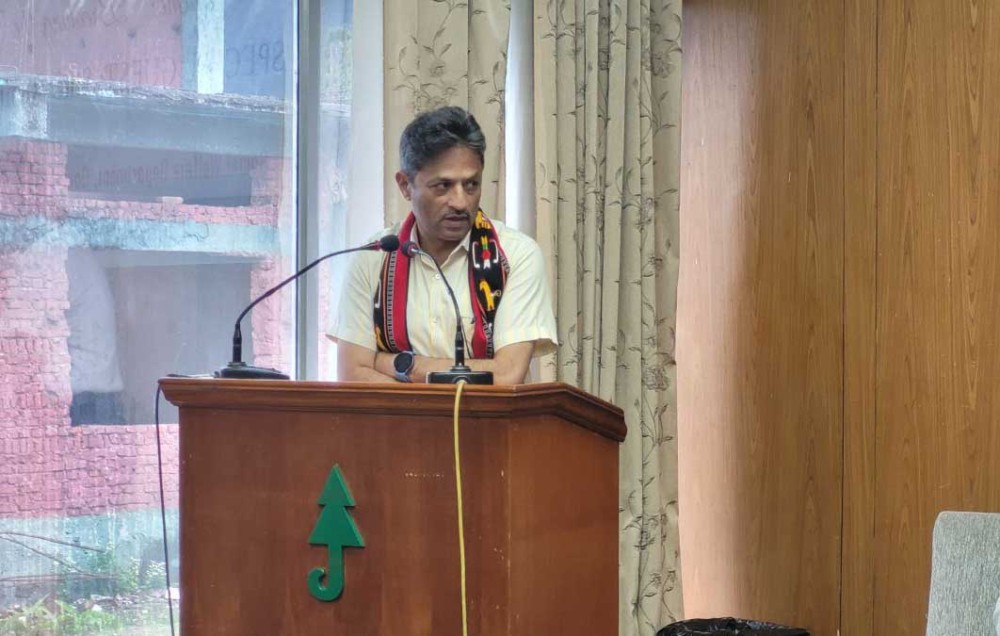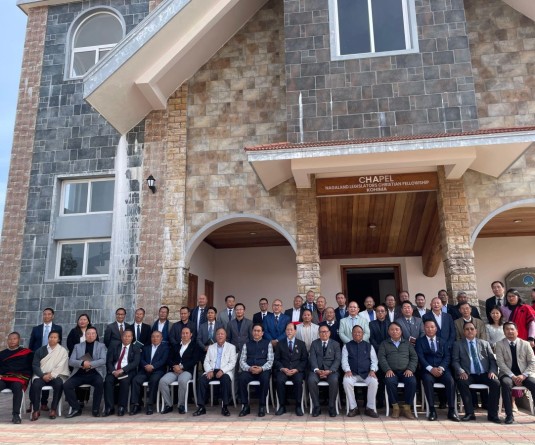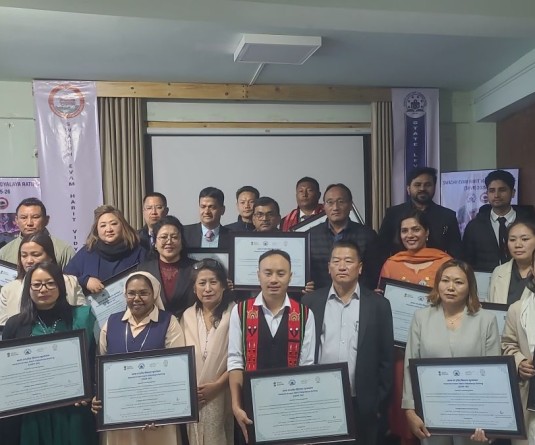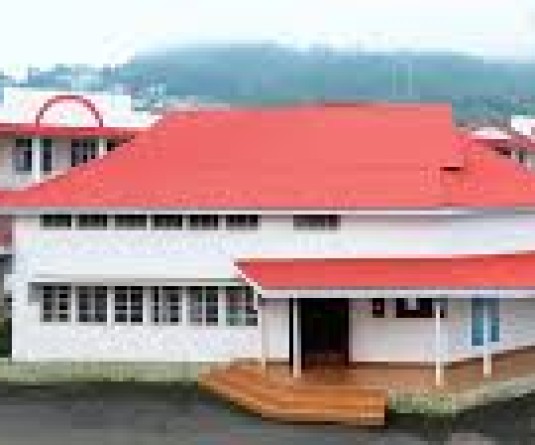DGP Rupin Sharma addresses an event marking the International Day Against Drug Abuse and Illicit Trafficking, held at Hotel Japfü, Kohima, on June 26. (Morung Photo)

‘What we are doing is definitely not enough,’ maintains State's Police Chief
Morung Express News
Kohima | June 26
In a State where substance abuse remains a persistent crisis, the top police chief underscored the magnitude of the problem, systemic challenges and gaps, and the urgent need for collective action involving society, government agencies, law enforcement, churches, non-governmental organisations (NGOs), and other stakeholders.
Speaking at the International Day Against Drug Abuse and Illicit Trafficking programme held at Hotel Japfü, Director General of Police (DGP) Rupin Sharma admitted, “Let me be honest. What we are doing is definitely not enough. We have not been as successful as we should have been in combating this problem.”
Using simple math, he painted a grim picture: if even one-third of Nagaland’s estimated 1.2 lakh drug users consume just half a gram daily, it adds up to nearly 7,000 kilograms annually or over 5 lakh soap cases of heroin and “sunflower” (a street name for Shanflower).
In contrast, law enforcement agencies collectively seize only around 5,000–10,000 soap cases a year, he illustrated.
“These are stark reality checks that we have; we are already losing a battle. Despite all the efforts, we have not been doing enough,” he added.
Systemic challenges and gaps
The DGP also did not shy away from acknowledging the lapses within the police force, admitting that the district-level Anti-Narcotics Task Forces have ‘more or less’ not performed.
Fresh guidelines have recently been issued, mandating not only outreach activities in schools but also data collection on rehab and de-addiction centres, drug user counts, and direct engagement with users, he informed.
He was also critical of the lack of coordination and the fragmented nature of law enforcement efforts, stating, “Everything happens in small pockets.”
“Unless you are able to connect the dots, you don’t have a larger picture of what is happening,” he added.
While acknowledging the well-conceived, multi-layered mechanism for tackling drug issues, ranging from the Union Home Minister to Deputy Commissioners at the state and district levels, Sharma wondered, “How much time do we actually devote to this issue?”
He emphasised the need for a dedicated structure that can consistently focus on the issue, noting with concern that none currently exists.
Call for trained counsellors
DGP Sharma also appealed to the church and civil society, stating that while religious counselling is valuable, it must be complemented by psychological and legal counselling.
“In Nagaland, we’ve confused religious counselling with medical and psychological support. They are not the same,” he elaborated.
Sharma emphasised the need for trained medico-psychology counsellors to deal with this issue in the State.
Govt must act with utmost urgency
Abou Mere, Director of Kripa Foundation, reminded the State Government of its “obligation and responsibility” in substance abuse prevention, treatment, and recovery.
“It should involve legislative, administrative, budgetary, judicial, promotional, and other measures to realise the right to health,” he said, appealing to the government to act with utmost urgency and demonstrate stronger political will and action.
He also underscored the need for supply, demand, and harm reduction strategies, noting that law enforcement agencies are mandated to implement supply control programmes to check, control, and prevent the smuggling, trafficking, and sale of illicit drugs.
“While supply control and demand reduction are processes that are consistently contributing to controlling substance use, it is also important to ensure that harm reduction and treatment services are available across the State for drug/substance users,” Mere maintained.
Churches are not prepared
Despite the rising substance abuse crisis, Dr Villo Naleo, Secretary of Social Concerns, Nagaland Baptist Church Council (NBCC), admitted that many churches are not prepared to address the issue, as they lack proper training and remain uninformed.
“There are several churches doing rehabilitation work, there are individuals and pastors who are genuinely concerned, but the majority is feeling indifferent about this issue,” he highlighted.
To this end, Dr Naleo also stressed the need to end stigmatisation, adopt a restorative justice approach, and build community support systems and strong family values.
The programme, held under the theme “Breaking the chain: Prevention, treatment, recovery,” at Hotel Japfü, was jointly organised by the Social Welfare Department, Nagaland State AIDS Control Society, and Kripa Foundation.






